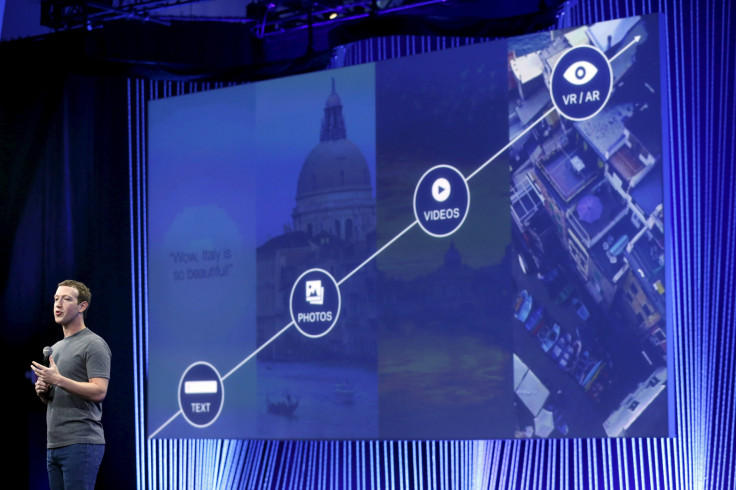Facebook: Oculus Rift Virtual Reality Headset Is Going To Be Great, Someday

When it comes to virtual reality, Facebook knows how to talk the talk, delivering a moving speech at its F8 developer conference Thursday explaining why this technology could change society. But walking the walk is a different story, as the company once again failed to announce a consumer launch date for the Oculus Rift, the headset from the startup it purchased last year for $2 billion.
Speaking before hundreds of developers at the conference in San Francisco, Oculus Chief Scientist Michael Abrash presented the crowd with numerous visual and audio illusions as a way to explain that if done right, virtual reality can be perceived by human brains as an actual world.
"'Real' is just electrical signals interpreted by the brain,” Abrash said, quoting the popular 1999 sci-fi film “The Matrix,” in which characters take their minds in and out of a virtual world. “Our experience of the world is an allusion.”
Earlier in the keynote, Facebook Chief Technology Officer Mike Schroepfer presented the crowd with two demos: the first, a decades-old virtual reality game in which players drive a tank and shoot at objects in a simple green and black landscape. Schroepfer followed that with a demo of a new Oculus Rift game with booming sound and vivid imagery of a pilot navigating his rocket ship as part of a futuristic fleet soaring through outer space.
Already, Facebook is taking baby steps toward integrating virtual reality, with CEO Mark Zuckerberg on Wednesday announcing that the Facebook News Feed and the Oculus Rift will now support 360-degree videos. The company has also done a good job illustrating the potential of virtual reality when it comes to gaming and entertainment as well as the ability to give users tours of distant locations or the ability to connect with faraway loved ones by meeting halfway in a virtual space.
“We fully expect that Facebook will bring the full weight of their development resources to building the ‘metaverse,’ a place for everyone to gather in virtual reality,” said David Cole, co-founder of NextVR, a company that specializes in video-recording live experiences and delivering them to virtual reality headsets.
But before any of this can happen, one major hurdle must be cleared: Oculus has to release a consumer version of its product, something the Facebook-owned company is taking its sweet time in getting to. It sells a $350 developer kit, but that product doesn’t feature the kind of design, features or marketing necessary to lure in the average Joe.
To say Oculus has been timid about its launch plans would be an understatement. After showing the space demo, Facebook’s Schroepfer made a comment that many on Twitter interpreted as meaning a consumer-ready Rift would launch this year. Facebook’s public relations team was then quick to contact reporters and alert them that “there was some misinterpretation during the keynote at F8 this morning.”
“Facebook’s CTO did not announce Oculus is shipping/coming in 2015,” Facebook said in an email. Virtual reality may one day be Facebook’s future, but that future is still a ways away.
© Copyright IBTimes 2025. All rights reserved.




















